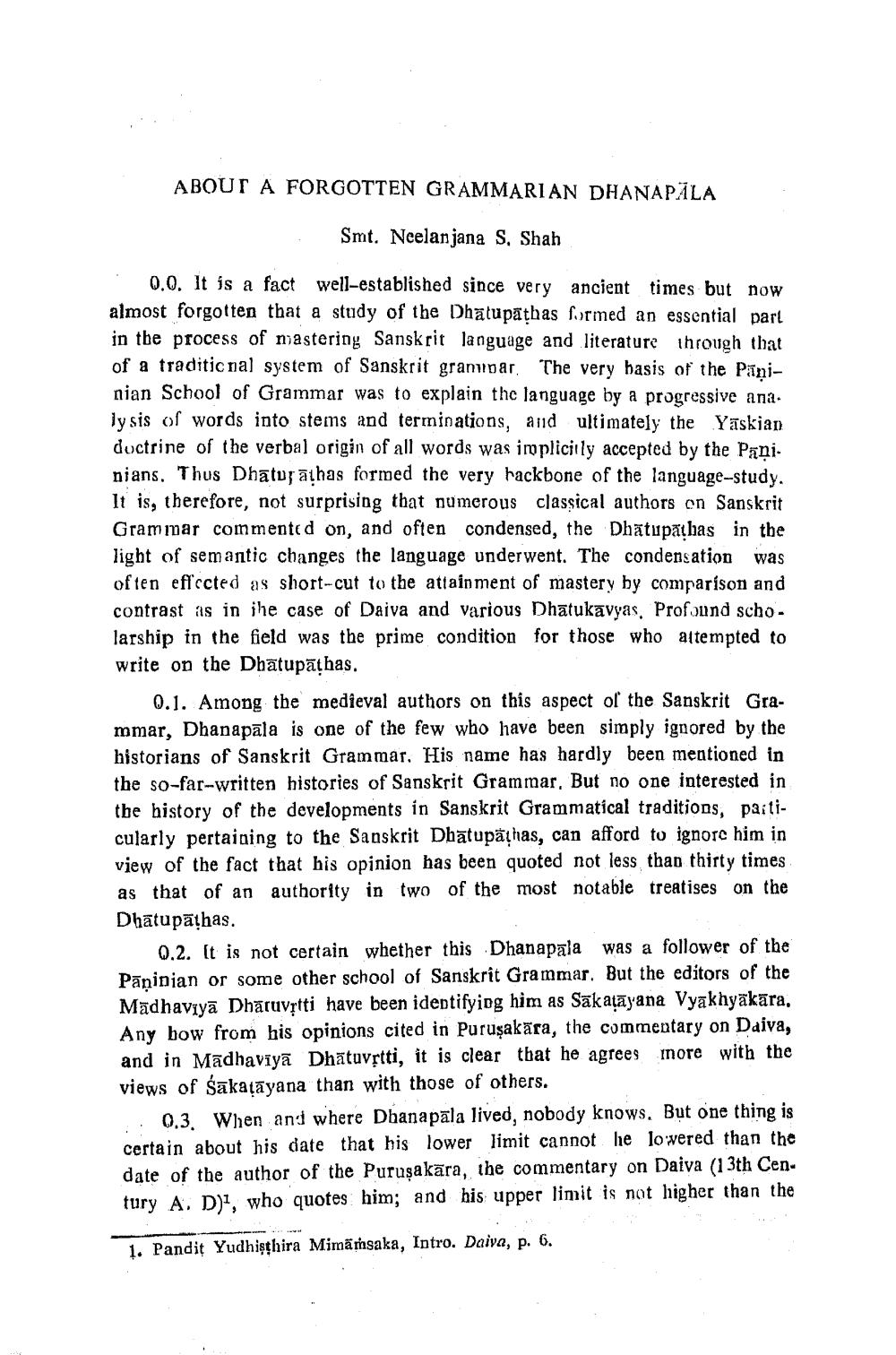________________
ABOUT A FORGOTTEN GRAMMARIAN DHANAPĀLA
Smt. Neelanjana S, Shah
0.0. It is a fact well-established since very ancient times but now almost forgotten that a study of the Dhatupathas formed an essential part in the process of mastering Sanskrit language and literature through that of a traditional system of Sanskrit granunar. The very basis of the Paninian School of Grammar was to explain the language by a progressive ana. lysis of words into stems and terminations, and ultimately the Yaskjan doctrine of the verbal origin of all words was implicitly accepted by the Pāni. nians. Thus Dhatujāthas formed the very hackbone of the language-study. It is, therefore, not surprising that numerous classical authors on Sanskrit Grammar commented on, and often condensed, the Dhatupathas in the light of semantic changes the language underwent. The condensation was often effccted as short-cut to the attainment of mastery by comparison and contrast as in ihe case of Daiva and various Dhatukavyas. Profound scho. larship in the field was the prime condition for those who attempted to write on the Dhātupāthas.
0.1. Among the medieval authors on this aspect of the Sanskrit Grammar, Dhanapāla is one of the few who have been simply ignored by the historians of Sanskrit Grammar. His name has hardly been mentioned in the so-far-written histories of Sanskrit Grammar, But no one interested in the history of the developments in Sanskrit Grammatical traditions, particularly pertaining to the Sanskrit Dbātupathias, can afford to ignore him in view of the fact that his opinion has been quoted not less than thirty times as that of an authority in two of the most notable treatises on the Dhātupāthas.
0.2. It is not certain whether this Dhanapala was a follower of the Pāninian or some other school of Sanskrit Grammar. But the editors of the Madhaviyā Dhāruvștti have been identifying him as Sākaļāyana Vyakhyäkära, Any bow from his opinions cited in Puruşakāra, the commentary on Daiva, and in Madhavīyā Dhātuvștti, it is clear that he agrees more with the views of Śākatāyana than with those of others.
0.3. When and where Dhanapala lived, nobody knows. But one thing is certain about his date that his lower limit cannot he lovered than the date of the author of the Puruşakāra, the commentary on Daiva (13th Century A. D)', who quotes him; and his upper limit is not higher than the
1. Pandit Yudhisthira Mimämsaka, Intro. Daiva, p. 6.




